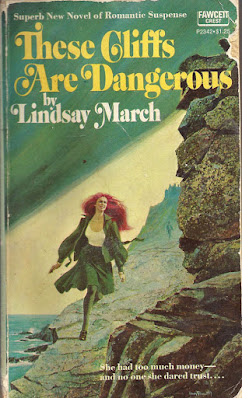I know, I know, I know. I said at the very beginning that this blog wouldn't be for reviews. Ten years ago, that was my intention. There were other outlets for reviews where I believed they rightly belonged. The world didn't need yet another book review blog.
Has that really changed? Well yes, and no. Amazon's reviews now have lots of requirements and caveats they didn't have then, but they're still often just as questionable as they were when I was busting the fiverr reviews. Over the past couple of years, BookLikes has more or less gone defunct. Goodreads, still the major review site, continues risky under the huge thumb of Amazon.
And there are a lot of bloggers who have left the business. Sometimes it's just general burn-out. Sometimes it's in response to harassment from thin-skinned authors and/or their "street teams" who demand only five-star reviews and no criticism. Review blogs, in their view, should serve only to promote and sell books.
I could, if I had the discipline or desire, research some of the existing book review blogs to see how many of them limit reviews to "four stars and above, only" and similar high-rating requirements. I have neither the desire nor the discipline. What those reviewers do is their business.
So what can I do to set myself apart?
Well . . . .
It's been almost five years since I picked up the figurative romance writing pen and wrote The Looking-Glass Portrait. I haven't done as much writing since then as I would have liked, and there are a lot of reasons for that. One is that I tend to write more when I read more. Reading serves to prime the pump, and I just haven't had much motivation to read.
And there have been personal reasons, too. Now I'm trying to get back to reading in order to get back to writing.
The Looking-Glass Portrait is a contemporary gothic romantic suspense. There are real ghosts in it, a real murder, a real romance. I had enormous fun writing it, and I realized in the process that this is one of my favorite romance sub-genres. It had gone out of favor in the 1970s when my historical romance writing career got its real start, but I always enjoyed reading the older gothics and those few that were still being written by authors like Phyllis A. Whitney and Barbara Michaels and Daphne duMaurier.
Now I'm ramping up the writing of another contemporary gothic romance, and I need to prime the pump again, so to speak. I have plenty of old paperback gothics to read, and I'll be treating you to reviews of some of those in the weeks and months to come. But the books written and published in the 1950s and 1960s aren't always reflective of the current market. I knew reading books being published today was essential.
As a retired person an a limited income, I rely a lot on the public library and free Kindle books to keep me in reading material that isn't tattered, often taped-together paperbacks.
If I had an unlimited book budget, I'd buy zillions of digital books because otherwise I'd be run out of house and home by stacks of paperbacks. I don't have that unlimited budget, so I acquire my collection via sales and . . . Kindle freebies.
Kindle freebies are, of course, mostly published by the authors ("SPAs" self-publishing authors) or small, independent publishers ("Indies"). In the past dozen years or so since I've been reading digital books, I've learned that there is often -- not always, but often -- a sharp divide between the traditionally published and the author/indie published books in terms of quality.
Maybe readers don't care. Maybe readers read without noticing the plot holes and the character inconsistencies, the errors of fact and the misspellings. Maybe the writers don't care either.
But I do care.
My thought today, then, is that maybe it's time to put some reviews on this blog, particularly of the indie/SPA digital books as compared to the traditionally published, with a fond focus on the gothic and romantic suspense sub-genres, as they were then and as they are now.
Not all the traditionally published gothic romances are five-star quality, despite their reputations or even semi-classic status. Over the past several years, I've done detailed analyses of some of those "classic" gothics, and the books have proven to be less than stellar, pun intended. I plan to put some of those analyses on here as well because they illustrate how even the traditional authors, editors, and publishers get it wrong.
Normally, I consider reviews are for readers, and in a way the reviews that will appear here are no different: they'll be meant to alert readers to books that in my opinion are great or terrible or something in between, so that they can choose their reading material accordingly. Reviews aren't for authors; they're supposed to get their critiques before they publish.
But the reviews I'm going to do are deconstructions, taking the story and the writing and even the presentation apart bit by bit to show what works and what doesn't and why. In that sense, these are reviews for writers as much as for readers. I want the books I read, whether Kindle freebies or library digital loans or any other format, to be well written and well structured, so I can lose myself in the words. That's what it's all about.



No comments:
Post a Comment